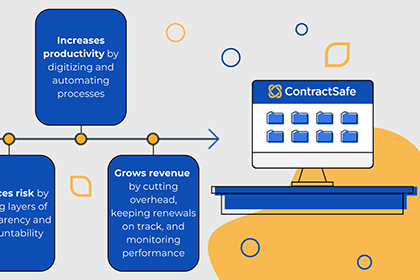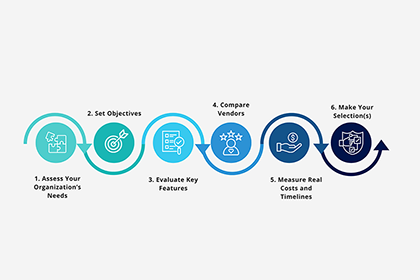What is a Contract Management System and Why is it Important?
Contracts are the backbone of business, legal, and organizational relationships. Manual contract management is always associated with risks such as errors, missed deadlines, lack of transparency, and increased costs. A Contract Management System is a comprehensive software solution that enhances transparency, reduces risk, and improves efficiency by digitizing and automating the contract lifecycle.
Why is a Contract Management System Important?
The importance of this system can be explained from several aspects:
- Transparency: All contracts and amendments are recorded and archived electronically.
- Risk Management: System alerts prevent the forgetfulness of deadlines, contract renewals, or terminations.
- Cost Reduction: Savings in legal staff time and reductions in litigation costs and human errors.
- Compliance: Regular document maintenance and auditing capabilities facilitate compliance with laws and regulations.
- Increased Efficiency: Managers can instantly access the status of contracts at any moment.
Key Modules of the Contract Management System
Contract Registration and Archiving
Ability to upload, categorize, and store contracts and related documents with advanced search functionality.
Contract Lifecycle Management (CLM)
Complete management from the creation of drafts to signature, execution, renewal, and archiving of contracts.
Contractor and Contract Party Management
Maintaining complete contractor information and evaluating their performance in executing contracts.
Management of Amendments and Addendums
Recording changes, amendments, and addendums with an accurate history and the ability to compare versions.
Reminders and System Alerts
Automated notifications for approaching deadlines, renewals, or terminations of contracts.
Reporting and Management Dashboard
Analytical reports on contract status, costs, obligations, and achievement of goals.
Benefits of the Contract Management System
- Reduction of legal and financial risks
- Increased efficiency of legal and contract units
- Enhanced trust from managers and stakeholders in the accuracy of information
- Support for strategic decision-making with accurate data
- Alignment with digital transformation processes of the organization
Practical Applications of the Contract Management System
The Contract Management System can be used in various fields:
- Construction and contracting companies: Recording and tracking project contracts
- Ministries and government agencies: Managing large national and international contracts
- Financial and insurance institutions: Managing financial commitments and investment contracts
- Trading companies: Managing supply, import, and export contracts
- Universities and research centers: Research contracts and scientific collaborations
Results and Achievements of Implementation
The implementation of the Contract Management System leads to:
- Increased transparency in legal relationships
- Reduction of operational costs
- Increased speed of response to contract changes
- Improved coordination between organizational units
Frequently Asked Questions



